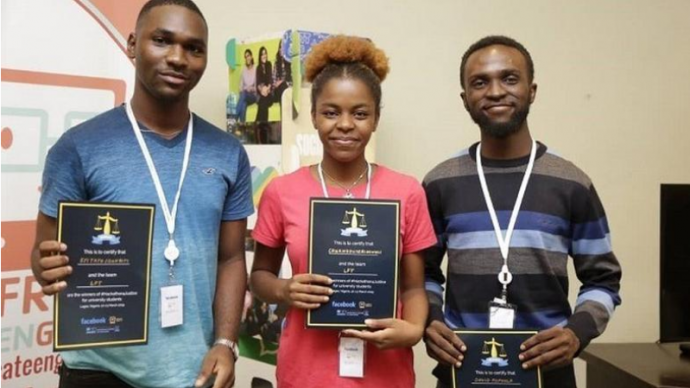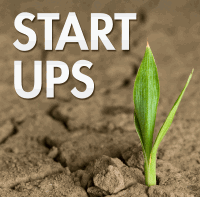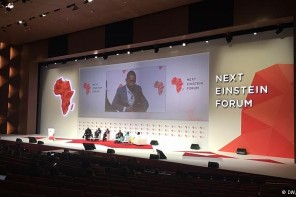Slavery didn’t end with the Act for the Abolition of the Slave Trade in 1807. Slavery is still a huge problem in our modern-day society. Human trafficking could be likened to an epidemic so rampant and deadly, it seems invincible. What if there is a significant breakthrough in the fight against this heinous act? What if we could change this narrative once and for all, slowly but steadily? David Popoola, Eyitayo Ogunbiyi and Chukwudumebi Onwuli, students of System Engineering and Computer Engineering Departments at the University of Lagos, Nigeria, recently developed a software known as ‘Let’s Fight Trafficking’ to help tackle the problem of human trafficking in Nigeria.
What is human trafficking and who are the victims?
The United Nations defines human trafficking as “The recruitment, transportation, transfer, harbouring or receipt of persons, by means of the threat or use of force or other forms of coercion, of abduction, of fraud, of deception, of the abuse of power or of a position of vulnerability or of the giving or receiving of payments or benefits to achieve the consent of a person having control over another person, for the purpose of exploitation.” The most common types of human trafficking are sex trafficking, forced labour, and debt bondage. Back in 2014, the International Labour Organisation (ILO) reported that the human trafficking industry is worth about 150 billion Dollars globally, with approximately 99 billion Dollars resulting from commercial sexual exploitation, and 51 billion Dollars coming from forced economic exploitation, such as mining/factory work, domestic work, agriculture and other related economic activities.
Learn more about prostitution beyond borders
Women and children, especially young girls, are the most affected groups globally. According to the Alliance 2017 Report, women and girls represented 84% of the 15.4 million people in forced marriages, and 59% of those in private forced labour. In July 2018 the Global Slavery Index estimated that there are 40.3 million victims of modern slavery worldwide (71% are women and girls, meanwhile 25% are children). It further suggests Africa has the most prevalent cases of modern-day slavery, with round about 9.24 million modern slaves and an average vulnerability score of 62/100. Nigeria, particularly Edo State is regarded as a major source, transit and destination within the realm of human trafficking. The United Nations Office on Drug and Crime (UNDOC) 2016 reported that 94% of all Nigerian women trafficked to Europe for prostitution hail from Edo State with Italy being the number one destination country. In recent times Lybia has taken the lead in perpetrating unlawful killings, gang rape, prostitution, arbitrary detention, torture and inhumane treatment, unpaid wages, human trafficking, racism and xenophobia not only against these unfortunate African women, but also African men and children included. According to the United Nations, the smuggling route from East, North and West Africa to Europe is said to generate 150 million Dollars annually (35 billion Dollars globally) in profits.
Using technology to break the yoke of slavery
There is no doubt that Nigeria has been seriously hit by this monstrosity, but herein lies a feasible cure to this cancerous cell in the African society. The newly developed software by David Popoola, Eyitayo Ogunbiyi and Chukwudumebi Onwuli is expected to sensitize both trafficked victims and their loved ones on human trafficking through an e-learning planning platform. User will be able to access the right tools that can potentially save them when they get into trouble. These tools include a facial recognition system that matches feed from webcams. The programme also has a feature that helps family members, friends or the authorities find out about already existing or reported cases by cross matching the image of a victim or perpetrator with a similar image in the database. Also included is a portal for the victim’s close friends and families to file reports about trafficking cases in their area. A heat map, generated from the report data, helps users know where trafficking is most prevalent in order to take the necessary preventive measures.
Read about the rape culture in Africa
‘Let’s Fight Trafficking’ resulted from a 29 hours coding marathon tagged #Hackathon4Justice organised in Lagos between March 22 and 23, 2019. This was a United Nations Office on Drug and Crime (UNODC) funded project in partnership with Facebook and Africa TeenGeeks. The aim project was to spark creativity in young people while promoting their coding capabilities. According to the Outreach and Communication Officer, United Nations Office on Drug and Crime (UNODC), Mr Sylvester Atere, the winners of the competition are expected to participate in the Global #Hackathon4Justice event, scheduled to take place in August 2019 at the Google Headquarters in Silicon Valley, California, United States. Speaking of which, this is a very practical example of the famous saying ‘killing two birds with one stone’.
Despite the great potential of this product, it important to note that the product on its own. cannot do the work effectively. The government must provide a supportive system to assist such innovative ideas locally. For instance, increasing literacy levels through proper education: one cannot communicate effectively with people who can’t read or write. Also, provide better network services, better internet connectivity as well as make communication devices like mobile/smart phones readily and easily accessible to the people mostly in rural areas, which are highly targeted by traffickers. Nevertheless, when technology meets innovative minds, with a yearning for positive change, magic is bound to happen. Many young Africans aka the Millennials, are using what they know best, technology, to recreate the plots of the African story that has been profusely stained by the reincarnation of its grievous past, the transatlantic slave trade.





